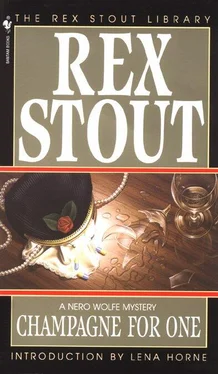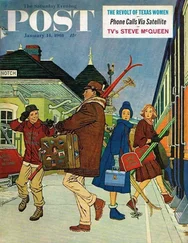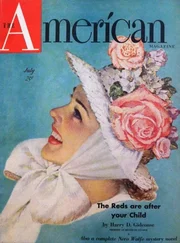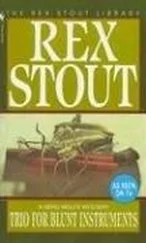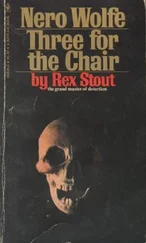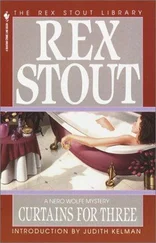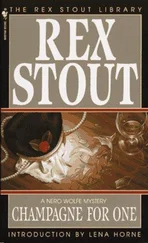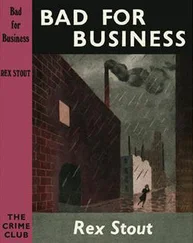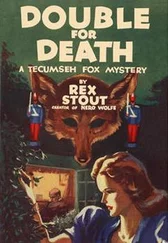Rex Stout - Champange for One
Здесь есть возможность читать онлайн «Rex Stout - Champange for One» весь текст электронной книги совершенно бесплатно (целиком полную версию без сокращений). В некоторых случаях можно слушать аудио, скачать через торрент в формате fb2 и присутствует краткое содержание. Город: Seattle, Год выпуска: 1996, ISBN: 1996, Издательство: Bantam Books, Жанр: mystery, на английском языке. Описание произведения, (предисловие) а так же отзывы посетителей доступны на портале библиотеки ЛибКат.
- Название:Champange for One
- Автор:
- Издательство:Bantam Books
- Жанр:
- Год:1996
- Город:Seattle
- ISBN:0553244388
- Рейтинг книги:3 / 5. Голосов: 1
-
Избранное:Добавить в избранное
- Отзывы:
-
Ваша оценка:
- 60
- 1
- 2
- 3
- 4
- 5
Champange for One: краткое содержание, описание и аннотация
Предлагаем к чтению аннотацию, описание, краткое содержание или предисловие (зависит от того, что написал сам автор книги «Champange for One»). Если вы не нашли необходимую информацию о книге — напишите в комментариях, мы постараемся отыскать её.
Champange for One — читать онлайн бесплатно полную книгу (весь текст) целиком
Ниже представлен текст книги, разбитый по страницам. Система сохранения места последней прочитанной страницы, позволяет с удобством читать онлайн бесплатно книгу «Champange for One», без необходимости каждый раз заново искать на чём Вы остановились. Поставьте закладку, и сможете в любой момент перейти на страницу, на которой закончили чтение.
Интервал:
Закладка:
“You’re already suspected. You were there.”
“That’s nonsense. You’re quibbling. I wouldn’t be suspected if it weren’t for Goodwin. Nobody would be.”
I permitted myself an inside grin. “Quibble” was one of Wolfe’s pet words. Dozens of people, sitting in the red leather chair, had been told by him that they were quibbling, and now he was getting it back, and he didn’t like it.
He said testily, “But you are suspected, and you’d be a ninny to hire me to prevent something that has already happened. You have admitted you’re desperate, and desperate men can’t think straight, so I should make allowances, and I do. That the police will not discover your connection with Faith Usher is a forlorn hope. Surely she knew your real name. Weren’t you known at Cordoni’s? Didn’t you have a charge account?”
“No. I have charge accounts, of course, but not at any florist’s. I always paid cash for flowers—in those days. Now it doesn’t matter, but then it was more—uh—it was wiser. I don’t think she ever knew my name, and even if she did I’m almost certain she never told anyone about me—about the trip to Canada .”
Wolfe was sceptical. “Even so,” he grumbled. “You appeared with her in public places. On the street. You took her to dinner. If the police persist it’s highly probable that they’ll turn it up; at that sort of thing they’re extremely proficient. The only way to ward that off with any assurance would be to arrange that they do not persist, and that rests with Mr Goodwin.” His head turned. “Archie. Has anything that Mr Laidlaw has said persuaded you that you might have been mistaken?”
“No,” I said. “Now that we can name the figure I admit it’s a temptation, but I’m committed. No.”
“Committed to what ?“ Laidlaw demanded.
“To my statement that Faith Usher didn’t kill herself.”
“Why? For God’s sake, why ?”
Wolfe took over. “No, sir. That is still reserved, even if I accept your retainer. If I do, I’ll proceed on the hypothesis that your account of your relations with Faith Usher is bona fide, but only as a hypothesis. Over the years I have found many hypotheses untenable. It is quite possible that you did kill Faith Usher and your coming to me is a step in some devious and crafty stratagem. Then –”
“I didn’t.”
“Very well. That’s an item of the hypothesis. Then the situation is this: since Mr Goodwin is unyielding, and since if the police persist they will surely bare your secret and then harass you, I can do your job only (a) by proving that Faith Usher committed suicide and Mr Goodwin is wrong, or (b) by identifying and exposing the murderer. That would be a laborious and expensive undertaking, and I’ll ask you to sign a memorandum stating that, no matter who the murderer is, if I expose him you’ll pay my bill.”
Laidlaw didn’t hesitate.” I’ll sign it.”
“With, as I said, no guarantee.”
“As I said, I don’t expect any.”
“Then that’s understood.” Wolfe reached to pick up the cheque. “Archie. You may deposit this as a retainer and advance for expenses.”
I got up and took it and dropped it in a drawer of my desk.
“I want to ask a question,” Laidlaw said. He was looking at me. “Evidently you didn’t tell the police what happened when I asked Faith Usher to dance with me, and she refused. If you had told them they would certainly have asked me about it. Why didn’t you?”
I sat down. “That’s about the only thing I left out. For a reason. From the beginning they were on my neck about my thinking it was murder, and if I had told them about her refusing to dance with you they would have thought I was also trying to pick the murderer, and they already had certain feelings about me on account of former collisions. And if you denied it when they asked you about it, they might think I was playing hopscotch. I could always remember it and report it later, if developments called for it.”
Wolfe was frowning. “You didn’t report this to me.”
“No, sir. Why should I? You weren’t interested.”
“I am now. But now, conveniently, her refusal is already explained.” He turned to the client. “Did you know Miss Usher would be there before you went?”
“No,” Laidlaw said.” If I had I wouldn’t have gone.”
“Did she know you would be there?”
“I don’t know, but I doubt it. I think that goes for her too; if she had she wouldn’t have gone.”
“Then it was a remarkable coincidence. In a world that operates largely at random, coincidences are to be expected, but any one of them must always be mistrusted. Had you attended any of those affairs previously? Those annual dinners?”
“No. It was on account of Faith Usher that I accepted the invitation. Not to see her—as I said, I wouldn’t have gone if I had known she would be there—just some feeling about what had happened. I suppose a psychiatrist would call it a feeling of guilt.”
“Who invited you?”
“Mrs Robilotti.”
“Were you a frequent guest at her house?”
“Not frequent, no, just occasional. I have known Cecil, her son, since prep school, but we have never been close. Her nephew, Austin Byne, was in my class at Harvard. What are you doing, investigating me?”
Wolfe didn’t reply. He glanced up at the wall clock: ten minutes past one. He took in a couple of bushels of air through his nose, and let it out through his mouth. He looked at the client, not with enthusiasm.
“This will take hours, Mr Laidlaw. Just to get started with you—what you know about those people—since I must proceed, tentatively, on the hypothesis that Mr Goodwin is right and Miss Usher was murdered, and you didn’t kill her, and therefore one of the others did. Eleven of them, if we include the butler—no, ten, since I shall arbitrarily eliminate Mr Goodwin. Confound it, an army! It’s time for lunch, and I invite you to join us, and then we’ll resume. Clams hashed with eggs, parsley, green peppers, chives, fresh mushrooms, and sherry. Mr Goodwin drinks milk. I drink beer. Would you prefer white wine?”
Laidlaw said yes, he would, and Wolfe got up and headed for the kitchen.
Chapter 6
At a quarter past five that afternoon, when Laidlaw left, I had thirty-two pages of shorthand, my private brand, in my book. Of course, Wolfe had gone up to the plant rooms at four o’clock so for the last hour and a quarter I had been the emcee. When Wolfe came down to the office at six I had typed four pages from my notes and was banging away on the fifth.
Most of it was a waste of time and paper, but there were items that might come in handy. To begin with, there was nothing whatever on the three unmarried mothers who were still alive. Laidlaw had never seen or heard of Helen Yarmis or Ethel Varr or Rose Tuttle before the party. Another blank was Hackett. All I had got on him was that he was a good butler, which I already knew, and that he had been there for years, since before Grantham had died.
Mrs Robilotti . Laidlaw didn’t care much for her. He didn’t put it that way, but it was obvious. He called her a vulgarian. Her first husband, Albert Grantham, had had genuine philanthropic impulses and knew what to do with them, but she was a phoney. She wasn’t actually continuing to support his philanthropies; they had been provided for in his will; she spent a lot of time on them, attending board meetings and so on, only to preserve her standing with her betters. “Betters,” for Laidlaw, evidently didn’t mean people with more money, which I thought was a broad-minded attitude for a man with ten million of his own.
Robert Robilotti . Laidlaw cared for him even less, and said so. Mrs Albert Grantham, widow, had acquired him in Italy and brought him back with her luggage. That alone showed she was a vulgarian, but here, it seemed to me, things got confused, because Robilotti was not a vulgarian. He was polished, civilized, and well informed. In all this I’m merely quoting Laidlaw. Of course, he was also a parasite. When I asked if he looked elsewhere for the female refreshments that were in short supply at home, Laidlaw said there were rumours, but there were always rumours.
Читать дальшеИнтервал:
Закладка:
Похожие книги на «Champange for One»
Представляем Вашему вниманию похожие книги на «Champange for One» списком для выбора. Мы отобрали схожую по названию и смыслу литературу в надежде предоставить читателям больше вариантов отыскать новые, интересные, ещё непрочитанные произведения.
Обсуждение, отзывы о книге «Champange for One» и просто собственные мнения читателей. Оставьте ваши комментарии, напишите, что Вы думаете о произведении, его смысле или главных героях. Укажите что конкретно понравилось, а что нет, и почему Вы так считаете.
